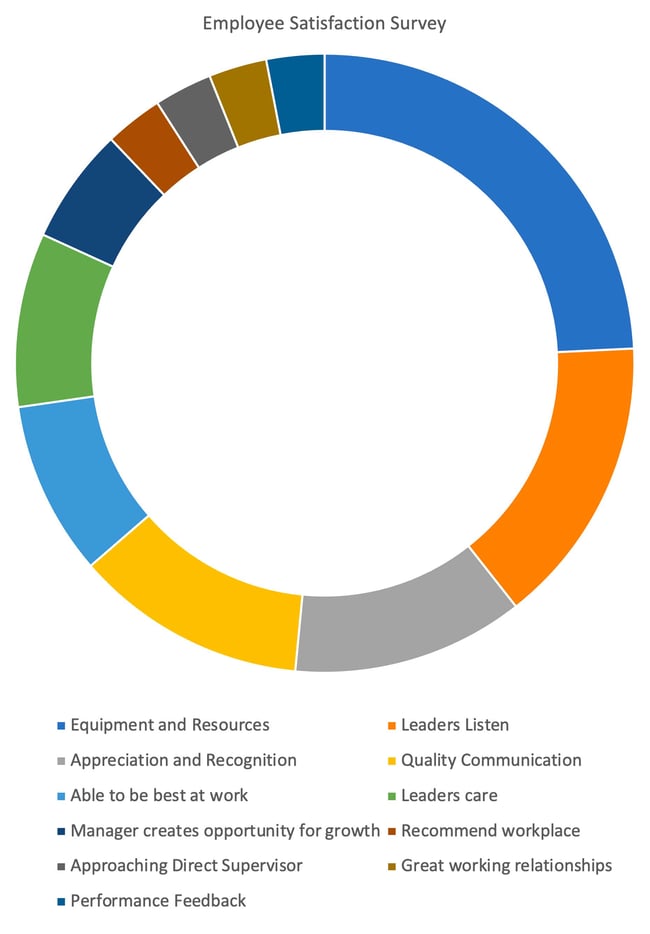No doubt, every job has difficult situations, but the nursing profession hasextra stressful and challenging circumstances. The healthcare profession in general can increase the level of stress that affects decision-making during an emergency. Therefore, extra care is needed to avoid "burnout".

In 1974, Freudenberger was the first person to observe less devotion and enthusiasm among mental health care clinic volunteers and introduced the term burnout [1]. Nursing burnout is an emotional, psychological and physical complication caused by persistently long working hours with immediate decision-making stress and the guilt of poor patient recovery burden.
According to Steve Ford, in nursing time [2], more than 60% of nurses suffered from mental and physical health problems due to work-related stress.
Because it can be a matter of life or death, it is essential to identify nurse burnout. Burnout level is measured by an internationally accepted scale known as Maslach Burnout Inventory (MBI) [3].
In early 2008, researchers at the University of Akron and Ohio Department of Health [4] found that pressure to hide feelings of stress led to emotional exhaustion, rapidly gaining traits in this demanding profession.
The demand for nurses has grown significantly due to the high prevalence of chronic and infectious diseases. Recently, COVID-19 has dramatically increased the need for medical professionals, and nurses were no exception. However, the US is experiencing a shortage of nurses, and due to that lack of a workforce, many burnout cases have been reported.
According to an RNnetwork survey [5], half of the American nurses plan to quit.
Hospitals and health facilities need to understand and be aware of the common warning signs of nursing burnout so preventive action can be taken immediately.
Here are the 5 signs of nursing burnout:
1. Persistent physical and emotional exhaustion
According to The Atlanta Journal-Constitution, nurses’ first sign of burnout is constant physical and emotional fatigue [6]. Despite the usual fatigue, absolute exhaustion will make you feel tired after sleep, struggle to wake up, abnormal dozing, inability to spend quality time with friends and family, lack of energy, and never falling asleep.
In addition, physical symptoms may also include a change in appetite, headaches, and abdominal pain.
2. Feeling overworked and underappreciated.
Feeling unappreciated and dreading going to work is an indication of burnout. As a nurse, it's common to be ignored in your request to reduce workload, leading to feeling overworked and underappreciated. Whenever you start feeling this way, it's time to consider the cause of this feeling.
Throughout our employee surveys of nursing staff, we’ve found Appreciation and Recognition to be amongst the top 3 concerns expressed by nurses as causes for burnout or turnover. See chart below.

A study published in the journal Annals of Behavioural Medicine [7], confirmed that, for nurses, the feeling of underappreciation is more stressful than the actual work
A nurse’s colleagues and patients will observe the frustration and resentful attitudes of a nurse feeling overworked and underappreciated. Most often, the nurse’s social circle may start avoiding them, leading to isolation.
3. Lack of enthusiasm, fear of work, and overwhelming anxiety
Many nurses begin to lose confidence in their work as burnout progresses.An individual suffering from burnout will lack motivation and often dread going to work. At work, they just want to escape the situation and will consider leaving or going home. It is normal to have anxiety as a nurse, but permanent anxiety is a functional disability. This kind of mentality is troubling for healthcare professionals because it can break the connection between health workers and patients.
Nursing staff must pay attention to their professional procedures and patients. Lack of motivation, fear of work, and overwhelming anxiety increase stress in the lives of workers but also affect the lives of others.
4. Insensitivity and irritability
Nursing professionals are adept at physical care and have a supportive nature. If nurses lose their sensitive and responsive behavior, lives and care will be adversely affected. Nursing staff may notice this change once they have an emotional connection with their patients but suddenly feel insensitive and irritable.
Insensitivity and irritability due to burnout are not limited to patients. It can influence your interaction with friends, colleagues, and family members. It's often easier to see in others than for the nurse to see in themself.
5. Recurrent illnesses
Eventually, burnout that is unchecked can lead to illness. Sarah A. Delgado, a clinical practice specialist with the American Association of Critical-Care Nurses (AACN), highlighted illnesses found in nursing burnout in an interview [8]:
- Gastrointestinal complications
- Abdominal pain and discomfort
- Irregular constipation or diarrhea
- Weak immune system
- Susceptible to flu, cold, and insomnia
- Depression
- Anxiety
- Heart problems
Sometimes other health ailments can also develop.
Conclusion
In such a complex profession, the list of symptoms is extensive, so this is not meant to be a thorough list of possible indicators of burnout. Some nurses ignore signs of burnout due to a desire to push through.
Understanding the signs of stress and burnout can help nurses address them and become better nurses [9]. A list of resources can be found at the National Academy of Medicine [10], which offers employee assistance programs to help.
Burnout can be prevented by improving nutrition, sleep, and exercise. Additionally, the nursing profession’s ethics and care have made it the most respected profession in America for 17 years running. That, in turn, boosts job satisfaction and job performance.
Are you worried about your nurses' levels of burnout? Do you feel your team shows any of the above signs?
Cortex can help!
Our product helps healthcare providers discover employee and nurse satisfaction issues preemptively.
Book a meeting with us to discuss ways Cortex can help you with nurse burnout.
References
[1] H.J. Freudenberger, Staff Burn‐Out, J. Soc. Issues. 30 (1974) 159–165.
[5] S. Sutherland, Survey Finds Half of Nurses Consider Quitting, (2019). (accessed July 14, 2021).
[8] M. Wojciechowski, Burnout and Its Burden on Nurses, (2019). (accessed July 14, 2021).




